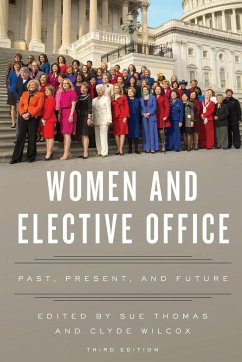
Eisenhower's Executive Office
Versandkostenfrei!
Versandfertig in 1-2 Wochen
87,99 €
inkl. MwSt.

PAYBACK Punkte
44 °P sammeln!
When Dwight Eisenhower ran for president he was so confident that he could organize the Executive Office more effectively than his predecessor that he made it an issue in the campaign of 1952. When he entered office he found that Congress had given him just two months to reorganize the Council of Economic Advisers or see it dissolved. The changes he made in the Council still form the basis of its organization. This book, based largely on original sources, attempts to analyze what Eisenhower did and did not do, and how well the mechanisms he installed worked.












